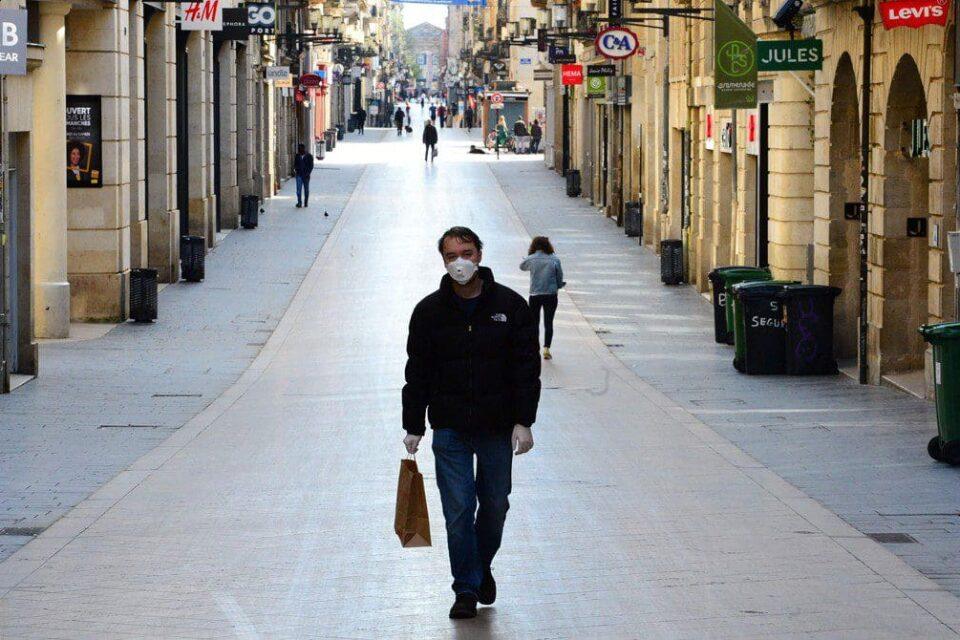Get ready for the two phases of virus crisis

The coronavirus pandemic marks the beginning of an extended period of recession. Communities around the world will have to learn to live with a crisis comparable only to the two world wars.
We cannot even estimate when the disease itself can be contained. Optimists believe that the virus will stop spreading by late June. The worst-case scenario predicts that humanity won’t be able to stop it before the end of 2020. To make matters worse, it remains unclear whether there will be multiple waves of infection.
We are at the beginning of a crisis, and we believe that our lives will never be the same again. We undergo a severe psychological transformation to lock ourselves in our homes and isolate ourselves from society. Senior citizens, some of whom left their homes despite an official curfew last weekend, proved just how hard it is to leave the streets and vacate public squares – even for a few weeks.
To manage this extended crisis, we must make accurate predictions about the second wave and the world in its aftermath. Hence the health care sector’s global solidarity against the virus. At the same time, we have academics, experts and journalists trying to guess how the world will look after the coronavirus pandemic.
Think tanks are working hard to help governments manage this crisis, minimize risks and seize fresh opportunities. Indeed, ideas like “self-sustenance is key” and “only those who persist will survive” are growing more and more popular. At the same time, we let ourselves be drawn into the perceived safety of the cyber universe.
Governments around the world believe that the answer is to invest in state capacity. It is unclear, however, how this crisis will impact social life, the economy, individual states and the international system down the road. The only certainty is what comes after the pandemic: Once the virus is under control, it will be the beginning of a new stage of the crisis. Everything, including humanity’s response to the initial threat, will be scrutinized. Our priorities as individuals will be called into question. We will assess our institutions, values and capabilities.
The international system’s indifference toward Syrian refugees alone had demonstrated its level of moral bankruptcy. Again, after the 2008 financial crisis, one could tell that the liberal world order was crumbling. Nowadays, the collapse of U.S. leadership and the European Union’s solidarity is unfolding, even more vividly, before our very eyes. At the same time, we remain skeptical of China’s unexpected success in the fight against the coronavirus.
Almost everyone agrees that the definition of normal will change and the world is on the brink of a radical transformation. After all, we are witnessing how a single virus has managed to undermine humanity’s faith in modernity, toward which civilization has worked for centuries. The speed of collapse is indeed breathtaking.
U.S. President Donald Trump’s emphasis on America’s national interest at the expense of its global responsibilities, and the uncertainty that stance entailed, was enough to fuel concern before the coronavirus. Nowadays, world leaders, including Trump, Britain’s Boris Johnson and German Chancellor Angela Merkel, cannot seem to even pretend to exercise some level of control over what is happening. Their status quo has already slipped away. They are concerned about not just the pandemic but also what comes after it. Those seemingly unconcealable concerns have encouraged experts to write a wealth of essays arguing that the current world order won’t survive the coronavirus.
Admittedly, it is difficult to answer the question of what the new normal will be. I would like to believe that the world will rediscover the importance of cooperation and solidarity once the time of “every man for himself” is over. Yet we must prepare for the possibility of power struggles in the post-pandemic world – the second stage of the crisis.
Turkey must assume a leadership role in the efforts to establish a new order. As a country that dealt with frequent crises in recent years, we have the ability to adapt to changing circumstances and make decisions quickly. As long as the Turkish people stand in solidarity, their country can emerge stronger from both stages of this crisis.
This article was first published by Daily Sabah on March 25, 2020.























